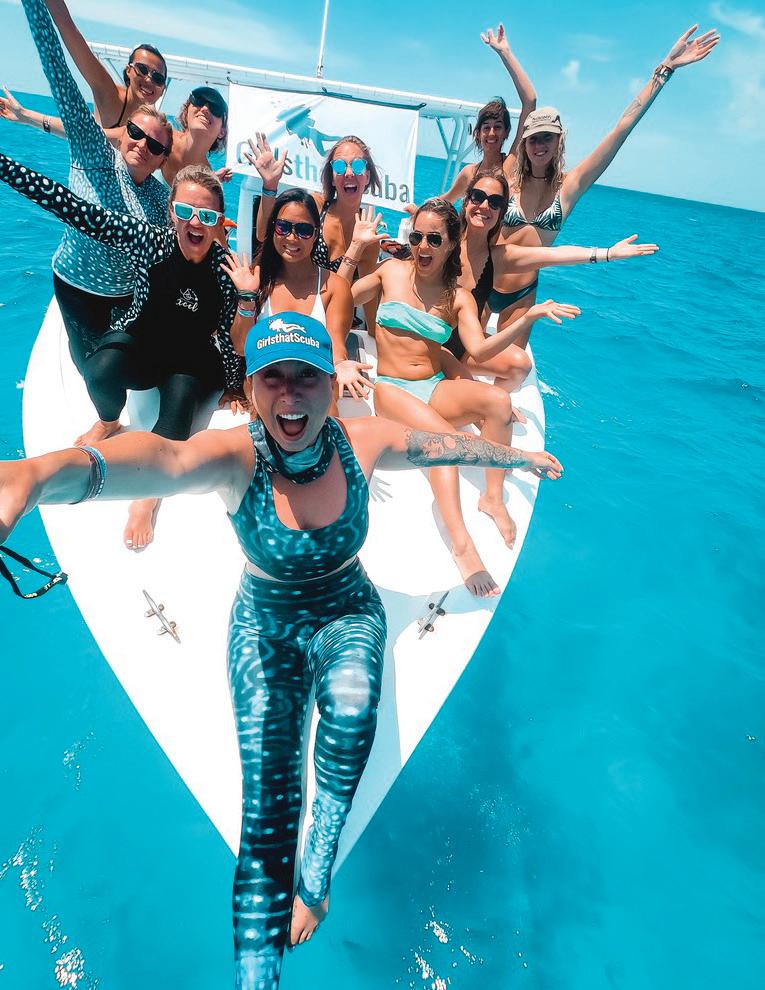
5 minute read
Making Waves
By Sarah Richard
The founder of the world’s largest all-female scuba diving community explains why more women should consider the sport.
Advertisement
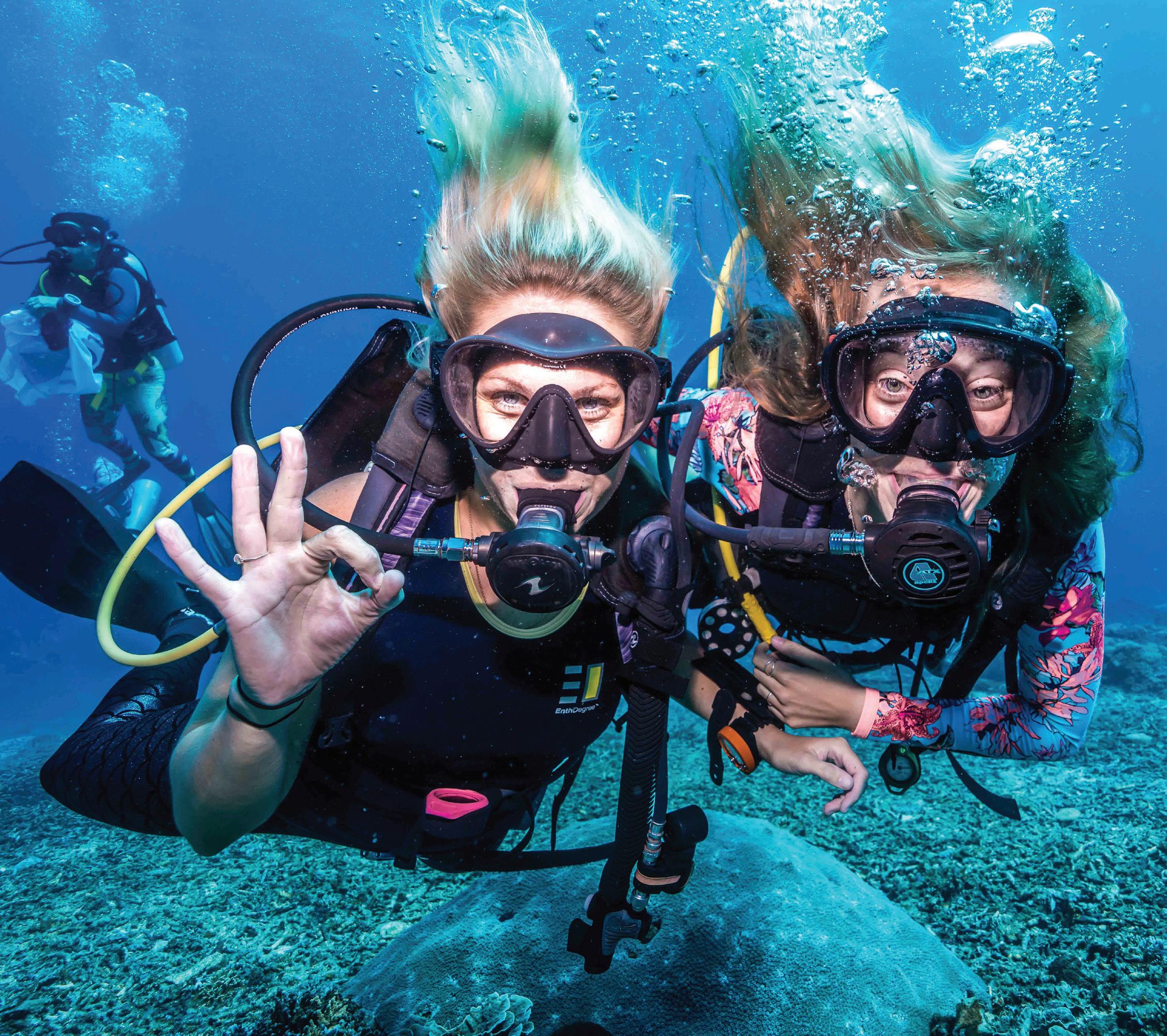
As the gap between male and female scuba divers' tightens—with 32% of the diving industry now made up of female divers, instructors, photographers, conservationists and even those who catalogue shipwrecks—it has been amazing to see women come together as an ever-expanding community of underwater lovers.
My passion-project-turned-business, Girls That Scuba, is the world's largest community for women passionate about scuba diving. I started it in 2016 to inspire more women to consider the sport when working as a Divemaster (and the only female member of staff ) on a liveaboard in Micronesia. Now our global community is 700,000-strong, with experienced scuba instructors and full-time ocean activists through to the courageous, the curious and those who have never even put on a scuba mask.
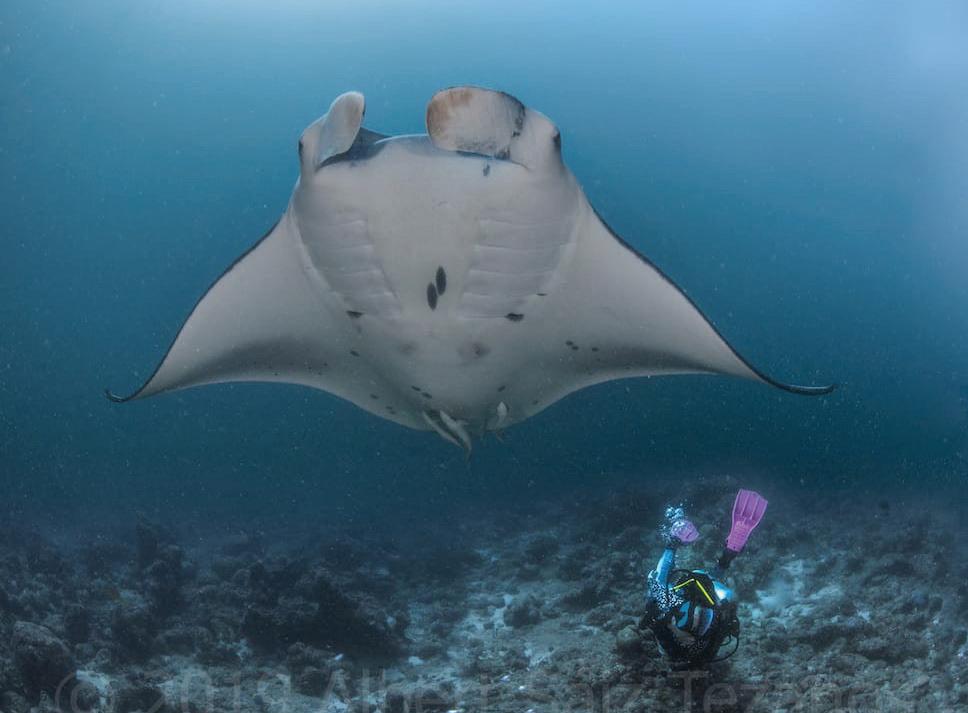
We can attribute increasing female interest in scuba to numerous factors. First and foremost, scuba diving is empowering. Not only does diving push you out of your comfort zone (for most of us, it takes a certain amount of courage to face the fear of breathing under the water!), but there is still the aspect of breaking through the proverbial 'boys club' mentality. Only recently have brands even started making diving equipment specifically for women, and wetsuits bigger than a size 12. Shocking really when you consider that the average UK female is a size 16.

Feeling comfortable with body size and shape is just one of the challenges that women have to face when getting underwater, which is part of the reason I created Girls That Scuba - to offer space for women to come together to discuss obstacles on being a female in a maledominated industry.

Another benefit to diving is that it tends to take us to beautiful, sun-kissed corners of the world, where you can find idyllic beaches and islands surrounded by crystal clear waters just begging to be explored. And if you are among the many solo female travellers "wanderlusting" their way around the globe, coming together as part of the diving community is a fantastic way to find like-minded friends to travel with.
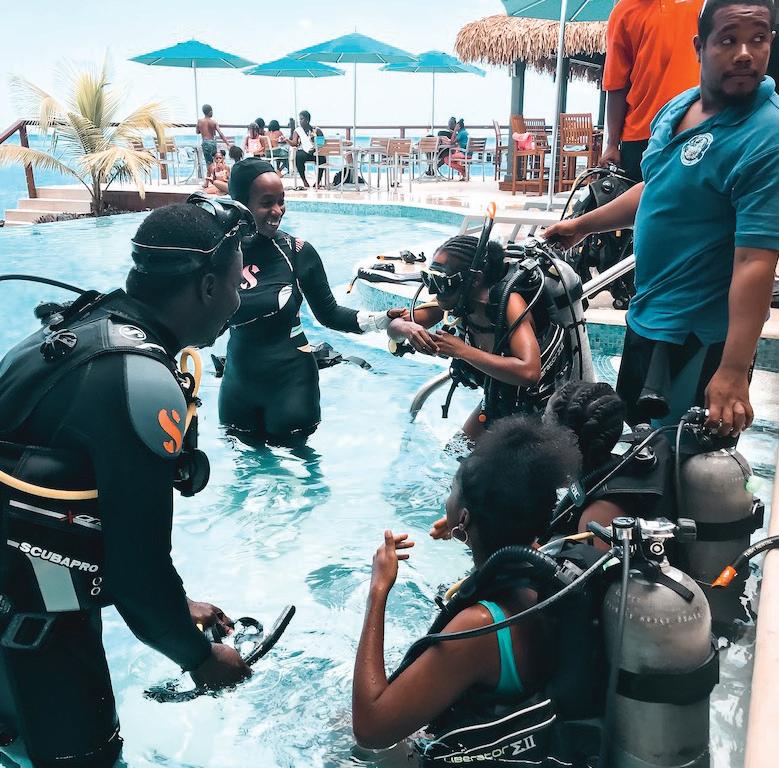
Scuba diving certainly takes travellers off the beaten path, and over time will influence the types of trips you take. For example, wellness travellers looking for luxury are going to love the diving opportunities in the Maldives, while those newer to the sport might see a dedicated scuba trip as a perfect opportunity to learn. Every year, Girls That Scuba runs dive holidays to the Red Sea Jordan, a favourite among newer divers as there is a balance between land and underwater excursions, the sites we dive at are accessible to all levels, and equipment is taken care of, meaning guests can relax and enjoy the ride.
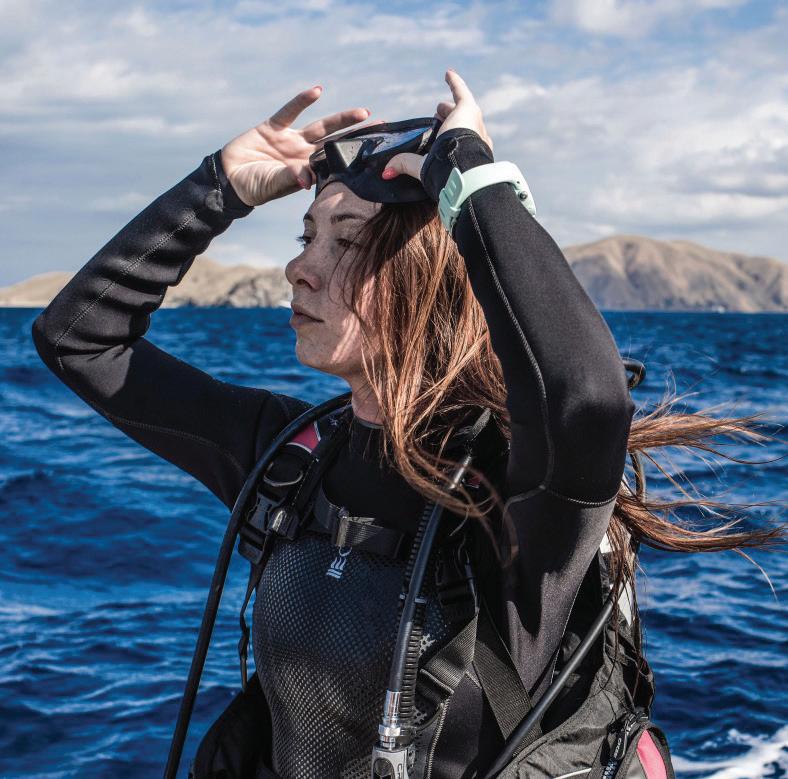
More experienced divers will likely take themselves off to Flores, Komodo Island or Raja Ampat – all in the lesser trodden paths of Indonesia - and those with specialist skills will love diving with sharks in Costa Rica or cave diving in the cenotes of Mexico. In short, scuba presents wannabe mermaids with an inspiring lifelong bucket list of incredible destinations that you'll be itching to tick off.

Another aspect is the environmental benefit. It's impossible not to want to make a difference once you've experienced the connection scuba diving gives you to the ocean. Being surrounded by marine life has made me, along with many of the other women in our conscious community, make much better daily decisions that support the future of our seas.

For example, the awareness of the consequences of single-use plastic is heightened when you're physically collecting plastic from the water so that it can be recycled or disposed of properly. In fact, it was after seeing the devastating amount of plastic first-hand that I was inspired to create A Waste Free World, an online shop offering plastic-free alternatives to beauty, baby and bathroom brands to make going plastic-free a little less daunting.
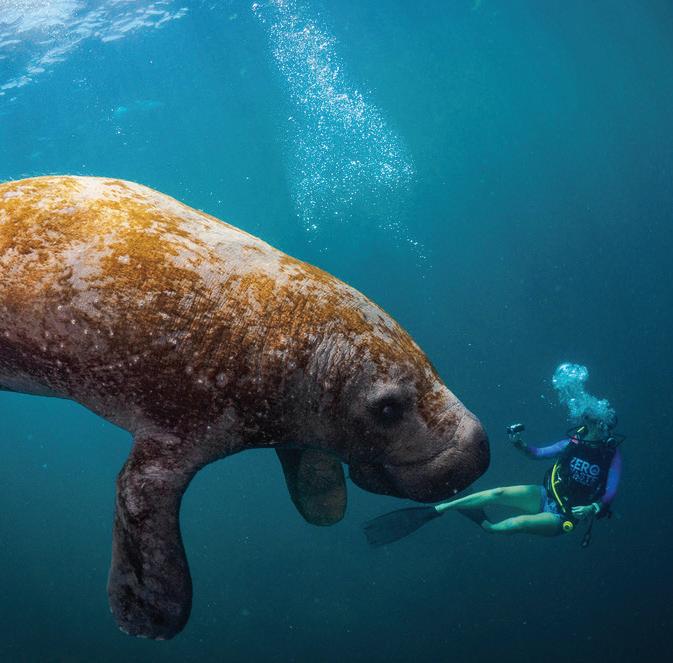
What's more, should you take your diving experience to Advanced Open Water level or beyond, then you can further qualifications by booking ecology-focused courses, like Coral Propagation, where you can give back to the ocean by "planting" new reefs, or Megafauna Weeks where you can learn how to support the ecology for gentle giants such as whale sharks and manta rays.

Finally, there are also incredible health benefits associated with diving. While you might enjoy the sensation of feeling weightless as you move through the water during a dive, due to the resistance, your muscles work harder than they do out of water. The more you dive and swim, the more your muscles lengthen, build strength and develop endurance as well as flexibility.
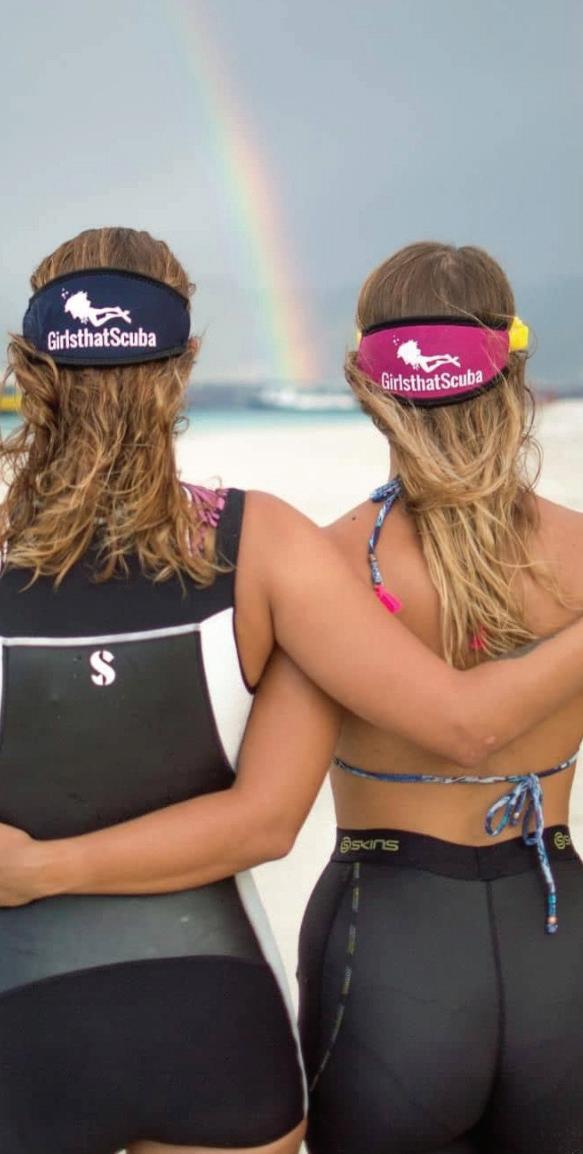
Steady, regular breathing is essential when diving to conserve and optimize your air consumption. This inevitably has a positive impact on your parasympathetic nervous system, reducing heart rate and calming the mind. As mentioned, most dive destinations tend to be warmer parts of the world with it a healthy dose of sunshine - which can only do great things for your body, mind and soul.
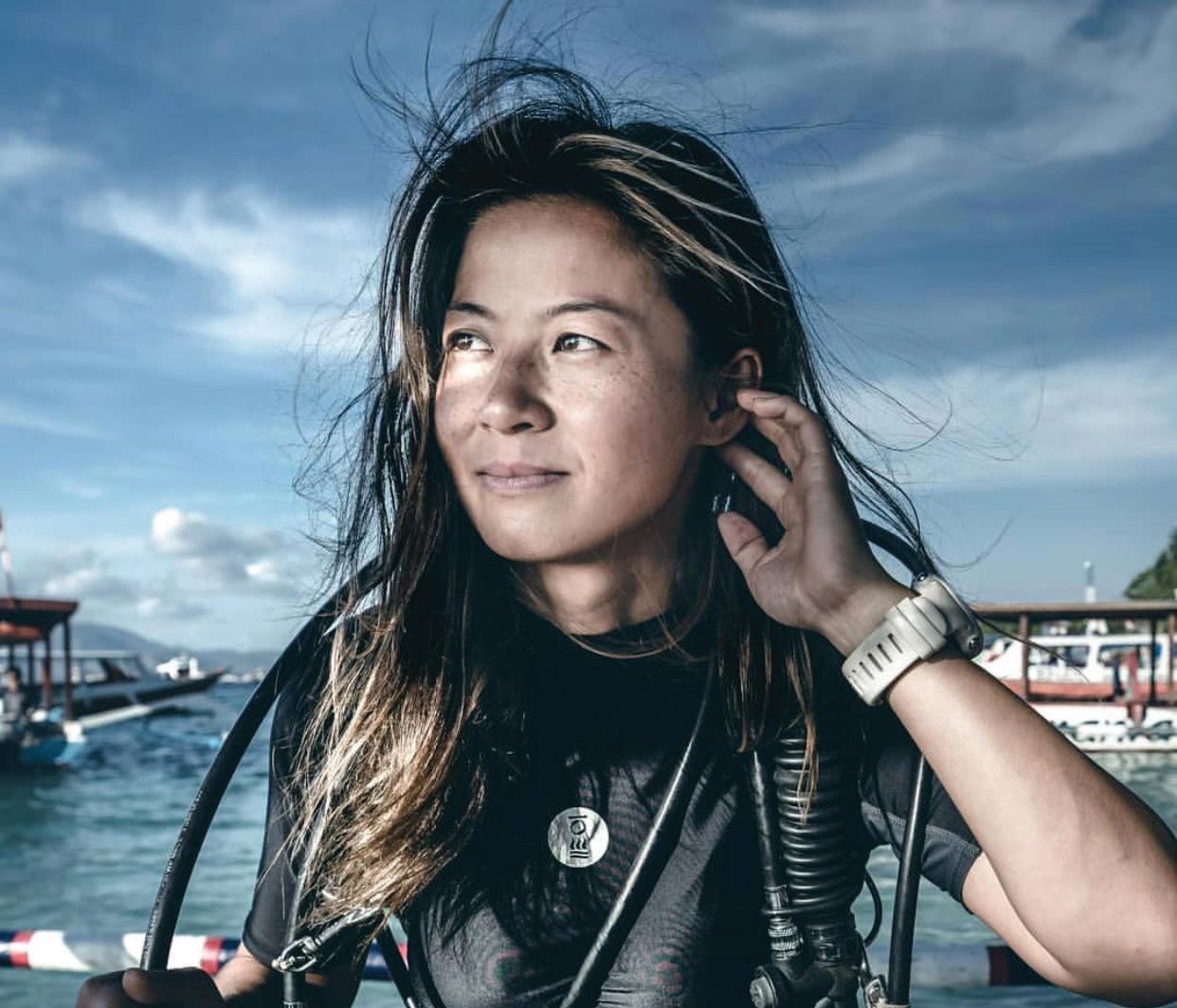
Whether you're brand new to diving and are in need of advice, looking for fellow females to dive with, hoping to take your skill set from recreational diver to studying the likes of biodiversity, or planning the trip of a lifetime by joining a dedicated diving retreat, I'd encourage you to join women making waves in the industry at Girls That Scuba.










